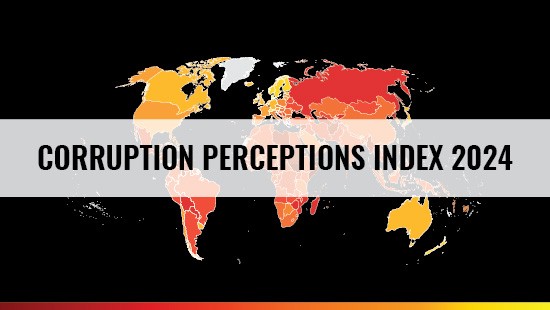TIB urges GoB to ensure transparency, equity and accountability in climate finance projects
Dhaka, 23 January 2017: Transparency International Bangladesh (TIB) today called upon the government to ensure transparency and accountability, maintain equity in resource allocation and enhance capacity of the local government institutions (LGIs) implementing climate finance projects in Bangladesh. The call was made during a press conference held this morning in TIB’s Dhanmondi office on the occasion of releasing the findings of a research titled ‘Climate Finance and Local Government Institutions: Governance in Project Implementation’.
Abu Said Md. Juel Miah, senior programme manager, and Nahid Sharmin, deputy programme manager of TIB’s research and policy division jointly presented the findings. TIB Executive Director Dr. Iftekharuzzaman, Deputy Executive Director Professor Dr. Sumaiya Khair and Mohammad Rafiqul Hassan, Director, Research and Policy division were also present.
Six projects were chosen for the research considering the climate hotspot, geographical location, six themes of Bangladesh climate change strategy and action plan (BCCSAP), types of LGIs, implementation period and the budget. Four projects were selected among 91 projects being implemented by municipalities, one from14 projects of zila parishad and one from three projects being implemented by city corporation. The objective of the research was to identify the governance challenges in the LGIs implemented climate finance projects.
The qualitative research carried out in between March and November, 2016 found weaknesses in several stages of project implementation. Projects were designed without assessing the adverse impact of climate change, without proper participation of people, issues addressed were incoherent with climate change induced disasters and overlapping with other development projects. It also found personal or political influence in the project approval process and BCCT Fund was used for regular infrastructural development and developing project proposal without any feasibility study.
The other weaknesses uncovered by the study also included non-disclosure of project information in many cases, lack of transparency in vendor selection process, nepotism and abuse of power in vendor selection process, selection of less vulnerable areas for implementation, irregularities during direct beneficiary selection, the use of political consideration to change implementation authority, tricks in contractor selection to evade tax and VAT and unnecessary cost borne by beneficiaries in building disaster resilient houses.
The research also found some positive aspects in the projects: One project located in cyclone prone area and prone to salinity intrusion built disaster resistant houses for the vulnerable households. Another project located in low disaster prone area took initiative on waste management. Two projects maintained transparency measures to disclose project related information in the project locations. They provided open board with related information where the activities were being implemented. Four projects among the six selected projects maintained consistency during the implementation of plans chalked out in the project proposals.
Advocate Sultana Kamal, Chairperson of TIB Board of Trustees said, “The concerned authority should be sincere about the BCCT Fund as it is formed with the public money and it should be used properly instead of used for political gains.”
Dr. Iftekharuzzaman, Executive Director of TIB urged the government to increase allocation of the BCCTF. He also called on the government to reform the Board of Trustees of BCCTF with the people having climate change expertise who will work above personal and political interest. Dr. Zaman also called upon the concerned authority to implement the climate finance projects with integrity and accountability.
Several recommendations were put forward for consideration of the government. These included among others reformulation of the BCCT Trustee Board, raising the BCCT Funds, approval of projects after verification of local climate vulnerabilities, strengthening the capacity of the LGIs, revision of the role and strengthening the capacity of the BCCT, amendment of relevant laws, policy and guidelines, enhancing information disclosure mechanism, enhancing coordination for strengthening accountability mechanism and monitoring system.
The full research report is also available on www.ti-bangladesh.org







